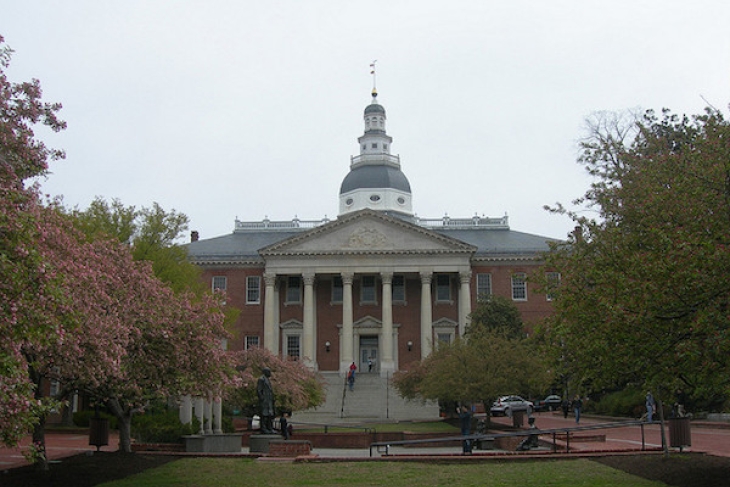I respect Maryland Governor Larry Hogan, am glad to be a long-time citizen of his state, agree with most of his policies and priorities, and appreciate his appointing me to the State Board of Education. But in all seriousness, and as many others have already noted, he shouldn’t monkey with school calendars.
I understand that state attorney general Brian Frosh (until recently my neighbor) is examining the question of whether the Governor’s executive order is binding. I have no view on that, except that I would hate for the whole matter to become a political football. To me, it’s a solemn issue of sound education policy.
Viewed that way, I see two main reasons why requiring (almost) all Maryland public schools to start after Labor Day and end by June 15 is misguided.
First, setting calendars that work for particular communities is a quintessential element of “local control.” Maryland leaves many matters to localities that I believe would be better decided for the state as a whole, but this one—like personnel decisions, instructional methods, and school closings (and openings)—is one that’s best decided close to home and adjusted to local circumstances. All sorts of variables bear on when school should and can be open, and these differ from place to place in ways that no uniform statewide rule can accommodate. Virginia’s public schools have been cramped if not crippled for ages by that state’s rigid “King’s Dominion Law” and Maryland—proud to a fault of its education track record—shouldn’t copy this restriction. If counties that rely on mountains and beaches for business and pleasure want to wait until after Labor Day—or til Halloween, for that matter—to commence the school year, that should be their prerogative. Ditto for places that want to boost learning and help parents by keeping school open into July. Yes, summer tourism matters to a number of communities in the Old Line State. But why on earth should the rest of the state be limited in this way?
Second and to me more important, constricting the school year by mandating start and end dates is educationally unsound. We’ve known for decades that U.S. kids spend less time in school than their higher-achieving peers in other lands. As a federal commission report—Prisoners of Time, it was titled—pointed out back in 1994, “Even the most committed advocate of the status quo will concede that American students cannot learn as much as their foreign peers in half the time. By this standard, our education system still has a long way to go.”
We’ve also known for ages that “summer learning loss” is particularly harmful to disadvantaged youngsters and that more and more of their schools—district and charter alike—have been extending the school year at both ends so as to combat this problem while more generally adding to teaching-and-learning time. (That’s why the best of the “no-excuses” charters have whittled the summer break down to about six weeks, something that will henceforth be extremely difficult for Maryland’s already-beleaguered inner-city charters to continue doing.) We’ve known for years that other states that limited the school year have paid a penalty in student achievement. (Harvard education professor Martin West has expertly summarized the relevant research.)
Maryland’s summer-vacation industry is naturally thrilled by Governor Hogan’s move and it seems to enjoy ample support in opinion polls. (It’s no coincidence that he announced it in Ocean City shortly before Labor Day.) But it’s not good for the state’s school kids—or the future prosperity of the state in which they will one day be adults, many of whom won’t have learned as much in school as they could and should have.
The executive order directs the State Board to issue waivers when sought by local districts, but only one year at a time and only when presented with “compelling justification.”
Speaking as one member of that Board, I’ll be inclined to vote for every waiver that’s requested (provided the executive order stands). But in my view the state’s chief executive should not be making them ask.
Sorry, Governor.

